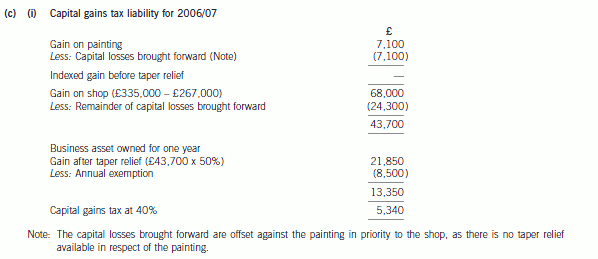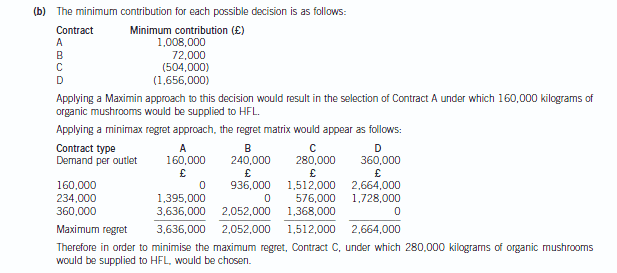ACCA有没有中文教材?速度了解一下!
发布时间:2020-04-11
ACCA有没有中文教材你知道吗?对于这个问题肯定还有很多小伙伴不清楚,下面快跟着51题库考试学习网一起了解一下吧!
ACCA考试虽然都是全英文统考,那么,它的教材是不是也是全英文的?有没有中文的教材呢?目前,全球范围内ACCA官方认可的教材总共有BPP、kaplan等版本,但无论是哪种版本均为全英文。为什么ACCA教材一定要用英文?
因为整个会计学科的理论都是来自英语国家的,包括会计、审计、财务分析等等。这些学科的教科书都是从英文翻译过来的。有些时候翻译成中文反而会让读者觉得表达得很拗口,因为在翻译的过程中一些名词是被硬生生制造出来的。而且,中英文句式在转换的时候也会存在语序问题,会影响内容前后的逻辑连贯性。
而且我们在学习与考试中,如果能够通过ACCA来培养一个好的英文书写和阅读习惯,也非常有利于提升自身的英语水平。英语水平差,能不能报考ACCA?当然是可以的,ACCA并未对学员的英语水平进行限制。但是,需要在学习的过程中适当地通过一些技巧,来克服语言的障碍。以下几大建议大家可以参考:
一、学会用英语的方式思维
由于其培养的是高级管理人才,面对的许多问题并不仅局限于会计的领域,因此需要站在更高的角度去拓展自己的思路。在学习过程中一方面要培养自己用英语进行思维的习惯、发散性分析能力和归纳能力,另一方面要从最基本的要义和逻辑分析入手,培养自己在复杂环境下的决策、判断能力和心理承受能力。
这些能力的培养可通过对其提供的大量案例的反复研究、分析和体会,逐渐使自己形成灵活、独立、辩证地分析问题、解决问题的能力。
二、抓住ACCA考试的规律性
ACCA考题的规律性比较强,重点内容会反复出现在历年考题中。尽管教材提供的内容很多,信息量大,而每次实际考试不会超过教材内容的三分之一,更不会出偏题和怪题。
考生不妨尝试分析历年考试内容,找出考官的出题规律,针对这些重点反复练习,这样有利于把握考试要点,同时提高学习效率,对考过关会有非常大的帮助。但这种分析是须建立在对书本内容全面理解的基础上的。
三、扩大知识面
除了要掌握课本和习题上提供的知识外,还要充分学习、利用考试资讯,不断扩大自己的知识面,了解新的考试信息和接受不同的观点。
在最后几门难度较大的管理策划和财务策划等课程中,课本似乎只提供了一个知识框架,应不断地补充知识面。
以上就是51题库考试学习网带给大家的全部内容,如果还想了解更多相关信息,请关注51题库考试学习网,51题库考试学习网每天会为大家更新考试相关的内容。
下面小编为大家准备了 ACCA考试 的相关考题,供大家学习参考。
(c) (i) Compute Gloria’s capital gains tax liability for 2006/07 ignoring any claims or elections available to
reduce the liability. (3 marks)

(b) Determine whether your decision in (a) would change if you were to use each of the Maximin and Minimax
regret decision criteria.
Your answer should be supported by relevant workings. (6 marks)

(d) Evaluate the effect on Gerard of the changes to be made by Fizz plc to its performance related bonus scheme.
You should ignore the effect of any pension contributions to be made by Gerard in the future, consider both
the value and timing of amounts received by Gerard and include relevant supporting calculations.
(5 marks)
Note: – You should assume that the income tax rates and allowances for the tax year 2006/07 apply throughout
this question.
(d) Implications for Gerard of the changes to Fizz plc’s bonus scheme
Value received
Under the existing scheme Gerard receives approximately £4,500 each year. This is subject to income tax at 40% and
national insurance contributions at 1% such that Gerard receives £2,655 (£4,500 x 59%) after all taxes.
Under the proposed share incentive plan (SIP), Gerard expects to receive free shares worth £3,500 (£2,100 + £1,400).
Provided the shares remain in the plan for at least five years there will be no income tax or national insurance contributions
in respect of the value received. Gerard’s base cost in the shares for the purposes of capital gains tax will be their value at
the time they are withdrawn from the scheme.
In addition, the amount he spends on partnership shares will be allowable for both income tax and national insurance such
that he will obtain shares with a value of £700 for a cost of only £413 (£700 x 59%).
Accordingly, Gerard will receive greater value under the SIP than he does under the existing bonus scheme. However, as noted
below, he will not be able to sell the free or matching shares until they have been in the scheme for at least three years by
which time they may have fallen in value.
Timing of receipt of benefit
Under the existing scheme Gerard receives a cash bonus each year.
The value of free and matching shares awarded under a SIP cannot be realised until the shares are withdrawn from the
scheme and sold. This withdrawal cannot take place until at least three years after the shares are awarded to Gerard.
Accordingly, Gerard will not have access to the value of the bonuses he receives under the SIP until the scheme has been in
operation for at least three years. In addition, if the shares are withdrawn within five years of being awarded, income tax and
national insurance contributions will become payable on the lower of their value at the time of the award and their value at
the time of withdrawal thus reducing the value of Gerard’s bonus.
(b) Identify and explain THREE approaches that the directors of Moffat Ltd might apply in assessing the
QUALITATIVE benefits of the proposed investment in a new IT system. (6 marks)
(b) One approach that the directors of Moffat Ltd could adopt would be to ignore the qualitative benefits that may arise on the
basis that there is too much subjectivity involved in their assessment. The problem that this causes is that the investment will
probably look unattractive since all costs will be included in the evaluation whereas significant benefits and savings will have
been ignored. Hence such an approach is lacking in substance and is not recommended.
An alternative approach would involve attempting to attribute values to each of the identified benefits that are qualitative in
nature. Such an approach will necessitate the use of management estimates in order to derive the cash flows to be
incorporated in a cost benefit analysis. The problems inherent in this approach include gaining consensus among interested
parties regarding the footing of the assumptions from which estimated cash flows have been derived. Furthermore, if the
proposed investment does take place then it may well be impossible to prove that the claimed benefits of the new system
have actually been realised.
Perhaps the preferred approach is to acknowledge the existence of qualitative benefits and attempt to assess them in a
reasonable manner acceptable to all parties including the company’s bank. The financial evaluation would then not only
incorporate ‘hard’ facts relating to costs and benefits that are quantitative in nature, but also would include details of
qualitative benefits which management consider exist but have not attempted to assess in financial terms. Such benefits might
include, for example, the average time saved by location managers in analysing information during each operating period.
Alternatively the management of Moffat Ltd could attempt to express qualitative benefits in specific terms linked to a hierarchy
of organisational requirements. For example, qualitative benefits could be categorised as being:
(1) Essential to the business
(2) Very useful attributes
(3) Desirable, but not essential
(4) Possible, if funding is available
(5) Doubtful and difficult to justify.
声明:本文内容由互联网用户自发贡献自行上传,本网站不拥有所有权,未作人工编辑处理,也不承担相关法律责任。如果您发现有涉嫌版权的内容,欢迎发送邮件至:contact@51tk.com 进行举报,并提供相关证据,工作人员会在5个工作日内联系你,一经查实,本站将立刻删除涉嫌侵权内容。
- 2020-02-06
- 2020-01-10
- 2019-07-20
- 2020-01-09
- 2020-01-10
- 2020-02-18
- 2020-01-09
- 2019-06-27
- 2020-01-01
- 2020-04-29
- 2020-05-09
- 2020-04-23
- 2020-01-10
- 2020-01-10
- 2020-04-09
- 2020-01-09
- 2020-01-10
- 2020-01-10
- 2020-01-10
- 2020-03-07
- 2020-05-08
- 2020-05-09
- 2020-04-08
- 2020-01-01
- 2020-01-09
- 2020-05-15
- 2019-03-27
- 2020-01-10
- 2020-05-23
- 2020-03-07